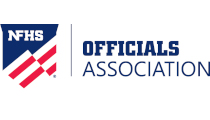Officials Need to Practice Good Sportsmanship
By Jay A. Cornils, CMAA on July 16, 2014 officials PrintA number of years ago, the National Federation of State High School Associations (NFHS) formed a Sports Citizenship Initiative to prepare a report for high school officials. The report included a bullet list of “should’s."
- To begin with, officials should make the welfare of all players their paramount concern when administering all contests.
- Officials should officiate in an unassuming manner. They should maintain poise, self-control and dignity throughout the contest.
- Officials should never assess penalties out of anger, but rather because the behavior is inappropriate and deserving of consequences.
- Officials should always shake hands with both coaches and administrators in public prior to a contest.
- Officials should never make their partners look bad, even when they may have missed a call.
This laundry list of should's would seem to beg the question “Why?” Why should interscholastic officials conduct themselves in such a sportsmanlike manner? Simple ‑ because citizenship and sportsmanship are the hallmarks of what interscholastic competition is all about be it in sports, forensics or performing arts.
Game officials are looked to as the central authority in any athletic event to maintain an atmosphere of proper sportsmanship. All officials must understand that sportsmanship is an appreciation of everyone's contributions to the outcome of a fairly conducted contest. It encompasses a genuine concern for others. Referees, umpires and judges are expected to demand the highest level of sportsmanlike conduct from players and coaches. How can they do this if, at the same time, they are not modeling a level of sportsmanship that serves as an example to all and cannot be construed as arrogant or condescending?
To that end, officials' conduct needs to be closely examined as well as the officials' expectations of coaches and players. Having the dual role of both model and enforcer places an extra duty on the individual official to both comport himself/herself in an unimpeachable manner and also to enforce rules of conduct with impunity and alacrity.
No matter how enraged the participants, coaches and fans may be, officials need to treat others as if their calls and rulings are being accepted without question. This does not mean that officials should ignore poor conduct; but rather, they respond to all situations with a poise "borne of the gods." Further, officials need to provide direct and focused interpretations of the rules when requested, provided time permits. No one has time for clinics during the heat of the moment; however, swift decisive clarification of the rules is appropriate and most always appreciated.
Officials are not permitted to express their emotions. Their roles as arbiters demand that they enforce contest rules in fair and detached manners. Officials need to look at the code of ethics published in the rules book and abide by these guidelines.
The officiating team needs to take the time to correct errors. It becomes readily apparent when officials do not respect each other. Officials need to remember that they are each other's allies, and if they do not support and encourage each other, they need not expect support from anyone else.
Another important consideration is how officials deal with auxiliary officials. Clock operators, scorekeepers, linesmen at volleyball games, and volunteer timers at swimming and track meets seldom are as knowledgeable about the game as the certified officials. But their roles in contests are equally important, and their feelings as human beings are even more so. Officials need to remind these officials of their responsibility to sportsmanship. Members of the chain crew in a football game are expected to comport themselves with the same professionalism as the officiating crew.
Announcers need to remain neutral and report visiting team names with the same degree of enthusiasm and proper pronunciation as they do the names of the home team members. They must be ready to announce emergency procedures in a calm and collected manner, and never should an announcer comment on the officials or the competition.
Scorers and timers must focus on the contest to ensure that the game clock and score are as correct as possible. These individuals need to be enthusiastic but calm. Timers at swimming and track meets must not overtly cheer for any team, but rather, encourage all individuals to do their best no matter what the circumstances.
Officials need to accept their roles in an unassuming manner. Showboating and over-officiating are inappropriate. The best officiated games are those in which no one remembers the officiating. Officials need to maintain their confidence and poise while controlling the contest from start to finish. Officials need to know the rules and abide by the expectations of conduct outlined in their code of ethics. Arguing with participants and coaches is always a losing proposition. It is a given that officials will miss a call here and there, but if they are hustling and in position, they may have the confidence that they are giving the contest its fair share, and consequently, they need not respond to any criticism in a defensive manner.
As a group, local officials should annually assess the needs within their area with respect to rough play, trash talk, taunting, harassment, fighting and inappropriate displays that might contribute to spectator reactions. These meetings should also take the time to focus on a zero tolerance for unacceptable conduct by coaches and players.
Some helpful hints for local organizations might be to focus on ways to prevent poor conduct and encourage good sportsmanship. Pregame discussions with coaches and captains would be a start. Reminders to captains that they need to control their teammates' behavior may help correct a problem before it becomes necessary for an official to assess an unsportsmanlike penalty. Local groups may share ideas on how to praise positive citizenship before, during and after contests ‑ rather than always focusing on penalizing inappropriate conduct after the fact. While officials are discouraged from talking during contests, quick reminders at appropriate moments are positive reinforcers to the whistle, the flag or the red card. A simple “easy" or "enough talk" frequently defuses a situation, even as just being in the vicinity of athletes whose emotions are starting to rise also helps to keep things quiet. At times, it may be appropriate to "bark" at someone, but sarcasm and scoldings are seldom effective and virtually never appropriate.
Finally, all officials need to remember that they are always officials. It is not sporting to be less than professional when observing others on the court or the field. Spectators, administrators or coaches will always recognize the officials in the stands, and if the off-duty officials conduct themselves in a less-than-professional manner, those individuals will take it as a cue to act in a likewise unsportsmanlike manner.
Because officials are the final arbiters of any athletic contest, their conduct must be above reproach and unimpeachable. It is totally unacceptable for any officials to bait a coach or a player. If the officials are not the first and best example of sportsmanlike conduct, how can the players, fans and even the coaches be held to a higher standard? The officials are the first example and the coaches the second. Together, as the responsible adults in charge of athletic contests, the coaches and the officials must be the individuals who set the standard by which contests are played.
If high school athletic programs are indeed going to be tributes to American sportsmanship and fair play, if athletic programs are indeed going to build solid, contributing American citizens, they will ultimately be measured by the degree to which officials and coaches set high standards of sportsmanship for themselves and by the degree to which they demand such conduct from their athletes.
Jay A. Cornils, CMAA
Jay A. Cornils is a retired educator and athletics administrator who is now living in Cleburne, Texas. A former member of the NFIOA and the NIAAA publications committees.
Most Recent Articles
- nfhs news NFHS Learning Center Delivers 25 Millionth Course
- Track & Field/Cross Country article Effective Communication with Athletes and Coaches
- nfhs news Player Equipment Changes Highlight 2025 High School Football Rules Revisions
- Player Equipment Changes Highlight 2025 High School Football Rules Revisions
- nfhs news Judgment Call on Second Contact Eliminated in High School Volleyball






